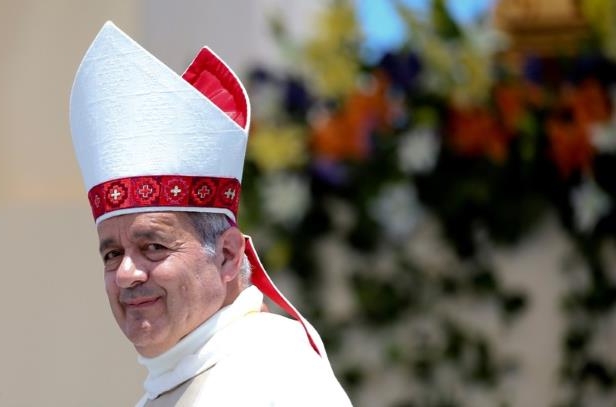Pope Francis has accepted the resignation of Bishop Juan Barros Madrid from his post in the Diocese of Osorno after he was accused of covering-up for Chile’s most notorious abuser priest, Fernando Karadima.
The Vatican announcement over the weekend also included the accepted resignation of two other Chilean bishops.
Bishop Barros submitted his resignation to Pope Francis alongside every other active bishop in Chile at the close of a May 15-17 meeting between the Pope and Chilean prelates, during which Francis chastised the bishops for systematic cover-up of abuse throughout the country.
Taking over in Bishop Barros’ stead is Bishop Jorge Enrique Conchua Cayuqueo OFM, auxiliary bishop of Santiago, who will serve as apostolic administrator for the Diocese of Osorno.
Investigation
In addition to Bishop Barros, Pope Francis accepted the resignation of Archbishop Cristián Caro Cordero of Puerto Montt, naming Fr Ricardo Basilio Morales Galindo, provincial for the Order of Mercy in Chile as apostolic administrator.
He also accepted the resignation of Bishop Gonzalo Duarte García de Cortázar of Valparaíso, naming Bishop Pedro Mario Ossandón Buljevic, auxiliary bishop of Chile, as apostolic administrator.
The Pontiff summoned the bishops to Rome following an in-depth investigation and report into the Chilean clerical abuse crisis carried out by Maltese Archbishop Charles Scicluna and Msgr Jordi Bertomeu of the Congregation for the Doctrine of the Faith in February, resulting in a 2,300-page report on the scandal.
The decision of whether to accept the bishops’ resignations is up to Pope Francis. So far Bishops Barros, Caro and Duarte are the first bishops whose resignation Pope Francis has formally accepted.
Announcement
The announcement coincides with Archbishop Scicluna and Msgr Bertomeu making a visit to Chile from June 12-19, this time traveling to the diocese of Osorno, which Bishop Barros led since 2015.
Pope Francis’ appointment of Barros to Osorno in 2015 was met with a wave of objections and calls for his resignation. Dozens of protesters, including non-Catholics, attempted to disrupt his March 21, 2015 installation Mass at the Osorno cathedral.
Opponents have been vocal about their opposition to Barros ever since, with some of the most outspoken being victims of Karadima, who in 2011 was found guilty by the Congregation for the Doctrine of the Faith of sexually abusing several minors during the 1980s and 1990s, and sentenced to a life of prayer and solitude.
Barros maintained his innocence, saying he didn’t know the abuse was happening. Pope Francis initially backed him, refusing to allow Bishop Barros to step down from his post and calling accusations against him “calumny” during a visit to Chile in January.
The Pope later apologised for having made “serious mistakes” in judging the case.
Since then, he has met with two rounds of abuse survivors in addition to his meeting with Chilean bishops.


 Bishop Juan Barros Madrid
Bishop Juan Barros Madrid 